Mary Anne Yarde's Blog: The Coffee Pot Book Club , page 92
April 26, 2020
Check out #HistoricalFiction author, Stuart Rudge's, fabulous #NewRelease — Rise of a Champion (Legend of the Cid Book 1) @stu_rudge

Rise of a Champion(Legend of the Cid Book 1)By Stuart Rudge

Antonio Perez is the son of a knight and a returning war hero, yet he loathes the idea of following in his father’s footsteps. But when his father is executed for alleged treason against Fernando, King of Leon-Castile, he launches a desperate bid to save his life and clear his name. Antonio soon learns that the world is much crueller and darker than he ever could have imagined.
Bereft of hope and condemned to slavery for his sins, he finds himself in the household of a young knight named Rodrigo Diaz de Vivar, a man destined for greatness. Together, they must face their demons and put an end to the man responsible for the downfall of the fathers; known as Azarola, renowned for his fox like cunning and malice, and one of the most powerful lords of Leon.
Rise of a Champion is the epic beginning to the Legend of the Cid.
Pick up your copy ofRise of a ChampionAmazon UK • Amazon US
Stuart Rudge
 Stuart Rudge was born and raised in Middlesbrough, where he still lives. His love of history came from his father and uncle, both avid readers of history, and his love of table top war gaming and strategy video games. He studied Ancient History and Archaeology at Newcastle University, and has spent his fair share of time in muddy trenches, digging up treasure at Bamburgh Castle.
Stuart Rudge was born and raised in Middlesbrough, where he still lives. His love of history came from his father and uncle, both avid readers of history, and his love of table top war gaming and strategy video games. He studied Ancient History and Archaeology at Newcastle University, and has spent his fair share of time in muddy trenches, digging up treasure at Bamburgh Castle.He has worked in the retail sector and volunteered in museums, before working in York Minster, which he considered the perfect office. His love of writing blossomed within the historic walls, and he knew there were stories within which had to be told. Despite a move in to the shipping and logistics sector (a far cry to what he hoped to ever do), his love of writing has only grown stronger.
Rise of a Champion is the first piece of work he has dared to share with the world. Before that came a novel about the Roman Republic and a Viking-themed fantasy series (which will likely never see the light of day, but served as good practise). He hopes to establish himself as a household name in the mound of Bernard Cornwell, Giles Kristian, Ben Kane and Matthew Harffy, amongst a host of his favourite writers.
Connect with Stuart: Website • Facebook • Twitter.
Published on April 26, 2020 21:30
#BookReview — The Woman Behind the Mirror by Jan Selbourne #HistoricalFiction #HistoricalThriller @JanSelbourne

The Woman Behind the MirrorBy Jan Selbourne
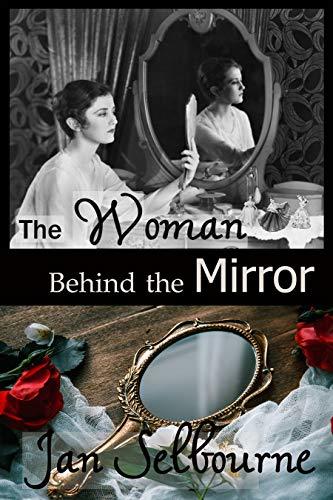
Marry in haste, repent at leisure is the last thing on Sarah Forsythe’s mind when she and the son of a local minister elope to the American colonies. She wasn’t to know abandonment, misery, poverty and shame would follow. As the colonies rebel against British rule and the siege of Boston worsens, alone and afraid, Sarah hides her desperation behind a hard shell. To survive, she is forced to steal from the safe of her employer. Instead of the cash she needs, she finds Bank of England documents. Sensing they might have some value, Sarah protects them through months of deprivation until she finally secures passage home to England. Unknown to her, two men are following, intent on claiming those documents. At any price.
Bank of England fraud investigator Neil McAllister faces the biggest challenge of his career when a woman from Boston demands a reward for returning lost documents to the bank. Then two men with the same name and nearly identical stories arrive in England, each claiming ownership of them. Who is lying? Or are all three accomplices in a plot to swindle the bank? As the obstinate, secretive woman gets under Neil's skin, he trusts that she was an unwitting witness to the crime of cold-blooded betrayal and treason before the fall of Boston. Now it’s up to Neil to protect Sarah because the traitor wants her dead.

"You are, I believe, the third son of a country Methodist minister," her father drawled. "What, pray, do you have to offer?"
Nothing. Mr David Langford had nothing to offer Miss Sarah Elizabeth Forsythe. But Sarah thought she was in love, and her father was a tyrant. Thankfully, David had a plan. They would run away to the American Colonies, where David promised her a wedding and a home of her own. Their life would be perfect. It would be absolutely perfect.
But America was not quite what Sarah had thought it would be like, and her marriage was nothing but a sham. Left destitute, alone, and caught up in the colonial rebellion against British rule, Sarah faces two impossible choices. She either dies in the gutter, or she earns a living any way she can…
From an impetuous decision that would lead to disastrous consequences to a complicated and unprecedented plot to defraud the Bank of England, The Woman Behind the Mirror by Jan Selbourne is the wonderfully evocative story of one woman's fight to stay alive in the face of adversity.
With a rich and compelling narrative, Selbourne has penned a book which is part historical fiction, part romance, part thriller, and part mystery. It is a story that captured my imagination, and it was one that was utterly enthralling. This novel commanded my attention from the opening paragraph and continued to hold it until that final full stop.
Sarah is a character who begins this story as an idealistic young woman who longs for adventure and a way to escape an arranged marriage. Trapped between her domineering father and a wholly unsuitable courtship, Sarah chooses the courtship. What happens to her next could never have been foreseen. Sarah is a character that suffers terribly in this book, and she becomes quite a hard and abrupt woman, who at times is difficult to like. Yet, with a gentle nudge, Selbourne reminds us that Sarah has this beautifully compassionate soul who will share her meagre rations with strangers or even a dog. Sarah is non-judgemental, and yet she fails to see her own worth. As the story progresses and Sarah becomes more acquainted with Neil McAllister, the real Sarah begins to shine through this cold exterior that she displays to the world. I thought Sarah's depiction was fabulous. Her story is heartrending, but at the same time, it is filled with hope.
I adored the depiction of Neil McAllister. Initially, Neil and Sarah are incredibly wary of each other, and neither is quite sure of the intentions of the other. Neil is one of the only characters who despite his initial judgement, discovers the real Sarah. He sees things that others do not, and what he sees he likes a lot. His determination to keep Sarah safe from her enemies, but more so, his acceptance of her past, made him a worthy hero for our brave protagonist. Neil was a character that I enjoyed reading about. He is clever, quick of wit, and more importantly, kind.
The Woman Behind the Mirror — was ever a book so aptly named? The mirror reflects the different stages and hardships in Sarah's life – from a hopeful young woman, a painted, perfumed whore, a homeless woman fleeing from a war, and eventually a lady who can once again hold her head up high. There is a scene where Sarah, after so much adversity, is invited to a ball and when she looks into the mirror as one would do before leaving the house, she can only see this ugly distorted image of herself reflected back, which I thought was heartbreakingly poetic. Sarah comes across as this very courageous and strong woman, but that is only a facade. What she is instead is a woman who has been appallingly used, abused and left destitute. The mirror shows her the sins that she has been forced to commit because of her husband and because of the abandonment of her husband's family. It is ironic, when one thinks about it, that the images she sees are of the sins of man, not of women, for Sarah did not bring any of her misfortune onto herself. She is dominated by her father, disappointed, as well as discarded by her husband, forced to work in a gentleman's club, and then cruelly stalked because she tried to take some tiny fragment of control back. Which leads me onto another theme that runs through the course of this book, and that is the countability of man. It is not just Sarah who suffers because of what a man has done to her in this novel. This book is set in a time when a woman's reputation was everything and once lost, was lost forever. For a man, as long as they paid their debts, their reputation was not at all slighted by having mistresses or keeping company with whores. The whores were considered despicable creatures, but not the men who used them. It was a woman's fault if she fell pregnant out of wedlock — no blame was put upon the man. This strange imbalance of morals is played out with care and diligence throughout this book.
The Woman Behind the Mirror by Jan Selbourne is a sprawling stirring story that is unputdownable. This is the kind of book one can lose themselves in.
I Highly Recommend.
Review by Mary Anne Yarde.The Coffee Pot Book Club.
Pick up your copy ofThe Woman Behind the MirrorAmazon UK • Amazon US
Jan Selbourne
 Jan Selbourne was born and educated in Melbourne, Australia and her love of literature and history began as soon as she learned to read and hold a pen. After graduating from a Melbourne Business College her career began in the dusty world of ledgers and accounting, working in Victoria, Queensland and the United Kingdom. On the point of retiring, she changed course to work as secretary of a large NSW historical society. Now retired Jan is enjoying her love of travelling and literature. She has two children, a stray live in cat and lives near Maitland, New South Wales
Jan Selbourne was born and educated in Melbourne, Australia and her love of literature and history began as soon as she learned to read and hold a pen. After graduating from a Melbourne Business College her career began in the dusty world of ledgers and accounting, working in Victoria, Queensland and the United Kingdom. On the point of retiring, she changed course to work as secretary of a large NSW historical society. Now retired Jan is enjoying her love of travelling and literature. She has two children, a stray live in cat and lives near Maitland, New South WalesConnect with Jan: Website • Facebook • Twitter • Linkedin
Published on April 26, 2020 21:00
#BookReview — The Forest of Allund (The Forest of Allund, Book #1) by Wilbur Arron #HistoricalFantasy @ArronWilbur

The Forest of Allund(The Forest of Allund, Book #1)By Wilbur Arron
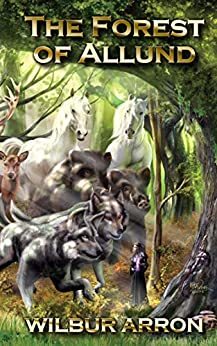
Young Mage Alexio Sopholus has returned home after ten years away at the Mage Academy. Although short and slight of build due to childhood sickness, he has found academic acclaim through his studies. Upon arrival in his home of Korpolis, he reacquaints himself with his old human friends and his former home. His only desire is to take up the position of forest caretaker left to him by his deceased master. The Forest of Allund is a place filled with equal parts myth, mystery, and fear. There he meets a wandering Amazon, but most importantly, his large and intelligent animal friends reside there. They all help him guard the forest against outside intruders. Soon the nature of the forces that govern and protect this place is made evident to him as he finds new sources of knowledge and power.
Although he only seeks peace and quiet, he is soon thrust into a war with a new barbarian tribe, the Zilar. They seek total domination of all the lands and are not above using slavery, genocide, and brutal repression to get their way. Alexio is forced to fight them directly using all the powers at his command. Initially successful in his efforts he finds his victories have only made him the object of intrigue by his leaders who fear his power and his popularity. His efforts at protecting the land are met with suspicion, fear, and betrayal by his own leaders.
Seeing the destruction, deceit, and betrayal around him, Alexio is forced to conclude that all his most cherished beliefs, principles, ethics, and morality are all but useless against the foes arrayed against him. To protect himself and his friends he must wage war. It will be a war without pity, mercy, and against the laws of Gods and Men. It may also make him an outcast in his own land.

"It must be wonderful to have the power of the gods."
But what man has a right to such powers? And besides, all mages know that one must always be respectful towards the Gods — it is written in The Code of the Brotherhood of Mages, after all. If a mage started to act like a god, then the gods would not take such an offence without recompense.
Mage Alexio Sopholus had graduated with a first-rate diploma from the Academy in all three schools. It was an exceptional accomplishment. With such qualifications, Alexio could have been a teacher at the Academy. He could even have become an advisor to a great king. But such a life was not for him. Instead, Alexio had returned home for a peaceful life as the caretaker of the Forest of Allund.
Alexio is determined to remain humble, to only use his powers for good. However, a dark and formidable army led by the ruthless barbarian leader, Zilar, threatens everything he knows and loves. Thrust into a war, not of his making, Alexio faces some difficult decisions. Does he continue to honour and abide by the Mage Code, or does he forsake it and save his friends?
Only time will tell if his decision is the right one…
From a prodigal son's return to the shocking betrayal by men who should have known better, The Forest of Allund (The Forest of Allund, Book #1) by Wilbur Arron is an epic tale of friendship, war, magic and love.
With a swirling stroke of his quill, Arron has portrayed a world that is filled with mythical creatures, legendary gods, and daring adventures. The Forest of Alluund is an evocative story that is painted on a canvas of great heroism and desperate tragedy. It is a story about a coming war and the man who would do absolutely anything to stop it.
Told with an alluring sense of time and place, The Forest of Allund is rich in both mythology and history. Drawing inspiration from the Hellenistic period, Arron has given his young hero a backdrop that is realistic in the telling. Add to that the mythical creatures, the moral dilemmas, the magic, and the protagonist's fight to save his kingdom, makes for one very appealing story.
Arron writes a great deal about ethics and morals in this book, and this story reminded me of Homer when he said in The Iliad that "We men are wretched things..." This quote certainly sums up Alexio's character, for he does some truly wretched things. War and fear corrupt as surely as power does. Alexio really struggles with the dilemma that he finds himself in, and often he looks for excuses that would exonerate him from his crimes. He had to do it. It was them or him. He was defending his friends. The truth is, of course, he is a very powerful mage who has within his possession the jurisdiction over life and death. However, Alexio does not harness his magic because he wants to elevate his position. He does not seek acclaim — he shies away from it. But there are some things that he does, which suggest that fame and power are exactly what he seeks, and I can understand why some of his allies question his motives. Despite the magic and the power, Alexio comes across as very human in the telling. He does have the power of the gods, but he does not have the gods' wisdom to know when enough is enough. Alexio is such a contradiction — on the one hand, he is this peaceful, wise character, and on the other, he is a cold-blooded murderer. Circumstances turn Alexio into an anti-hero, which I thought made him all the more fascinating.
A character that I was drawn to was Philie of the Amazon Antelope Tribe. Philie has a very intriguing backstory, and she is, as one would expect from an Amazon, courageous, strong and wise. I thought Philie brought a great deal to this story. At times she becomes Alexio's conscience, which isn't necessarily a good thing because she makes excuses for what he has done and what he will do. However, this does prove her unyielding loyalty to Alexio, which is admirable. Philie is certainly a warrior you would want standing by your side in a fight. I thought Philie's depiction was sublime.
There are many mythical creatures in this book, and they are all marvellously depicted. It is almost as if Alexio and the mythological creatures have an unspoken covenant. These creatures are dedicated to preserving Alexio's life — they do treat him as a sort of god, and they will do as he commands — with the exception of the Old Ones who will not be ruled by anyone! I was particularly fascinated with the Old Ones. These ancient beings are terrifying to look upon, and yet, they are exceptionally wise. When Alexio does something that they are not comfortable with, they tell him, which is precisely what Alexio needs. He does not always listen, but it does curb his volatile nature to an extent.
Some of the problems the protagonist faces when fighting the enemy, are overcome with the use of some very clever engineering. Arron depicts these engineering challenges in an easy to understand way, which I thought was very refreshing, and it also gives his readers an insight into some of the tremendous engineering feats of this era. Likewise, the attention to the military detail is also worthy of praise. Kudos, Mr Arron
If you are looking for a book that is rich in fantasy and magic with a touch of the ancient world, then The Forest of Allund (The Forest of Allund, Book #1) by Wilbur Arron will undoubtedly appeal. I am very much looking forward to reading Book #2 of what promises to be a very compelling series.
I Highly Recommend.
Review by Mary Anne Yarde.The Coffee Pot Book Club.
Pick up your copy ofThe Forest of AllundAmazon UK • Amazon US
Wilbur Arron
Wilbur Arron is the pseudonym of a retired professional engineer, project manager, and government official who has spent over 40 years in various engineering fields throughout the Southeast United States. In this time he has worked mostly on environmental issues, but also promulgated government regulation, performed forensics investigations, and investigated and corrected manufacturing problems.
Besides his technical background, Wilbur Arron is also an amateur historian with his major work on ancient history. This has given him insight on how the principles of science and engineering developed over the ages. He is familiar with both Greek and Roman history from 1500 BCE until 500 AD. He has also studied European history and the history of the Far East. Now in his late 60s, he has witness the major technical events occurring since the early 1960s and has taken part in a few of them. His first work in computer modeling was done using Fortran IV, and an IBM 360 on loan from NASA; then having data sent out on the Arpa-net. He was an early user of both desk top publishing and word processing platforms.
One of his other interests is in science-fiction and fantasy literature. He has been a reader of both styles of literature since the late 1950s. Since the late 1980s, he has attended and spoken at many World Cons on a variety of subjects from the history of science, to the design of national and private space programs. He has also met many authors both of science-fiction, fantasy and history.
Since his retirement, Wilbur Arron has decided to try a new career at writing. This allows him to combine his knowledge of science, engineering, and history into a single project. Now a widower, this also provides him time to write. Prior to this his first novel, he has published short stories to several on-line web sites such as Fan Fiction, Fiction Press, and Story Star. After favorable reviews for these stories, he decided to write a three book fantasy series set in a background similar to ancient Greece in the period after 330 BCE.
Connect with Wilbur: Website • Twitter • Goodreads.
Published on April 26, 2020 20:30
A Conversation with Anna Belfrage #Paranormal #Romance @abelfrageauthor

A Conversation with Anna Belfrage
Please give a warm Coffee Pot welcome to Anna Belfrage.
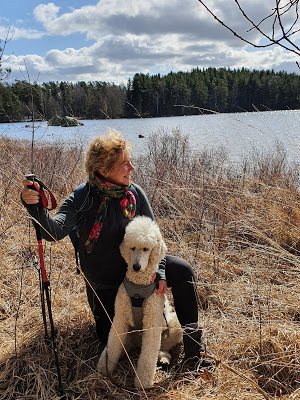 MA: Anna, before we being, could you please introduce yourself to some of my readers who have yet to discover your fabulous books.
MA: Anna, before we being, could you please introduce yourself to some of my readers who have yet to discover your fabulous books.AB: Well, first of all, thank you Mary Anne for inviting me over to visit. And I do hope that despite your excellent site’s name you can offer a thirsty visitor some tea seeing as I don’t drink coffee. Never. Except when I’m pregnant (which will never happen again).
My name is Anna Belfrage, and other than being a major tea guzzler I am also something of a chocoholic. Both of these vices make me very happy I live in the here and now as neither tea nor chocolate were in much supply in, let’s say, the Middle Ages.
I have always loved to read. I began to write in my wardrobe at the age of seven as there were far too few stories featuring a wild-haired Anna as the heroic protagonist. These stories were very, very secret and always ended with me saving such people as Richard Lionheart from dire death.
Since then, I have revised my opinion of Richard Lionheart, but I still like my stories to have gutsy heroines who risk everything to save those they love. In general, this approach to life drives my heroes crazy—especially when my books are set in historical times. Men of the past prefer to be the ones doing the saving, but my male protagonists are secretly very proud of their brave other halves.
When I am not reading or writing, I reenergise myself by taking long walks in the woods with my standard poodle Asterix. When hubby comes along, these walks become exploratory rambles, as hubby likes to point at overgrown paths and say “I wonder where that leads?” Last time he did that, it took us six hours to get back home…
MA: You have written so many books, set in a variety of historical settings. And then you took a giant step outside of your comfort zone and wrote a contemporary romantic suspense with quite the dose of paranormal and time-slip. What inspired you to write A Torch in His Heart?
AB: I remember exactly where I was when Jason and Helle (the protagonists in A Torch in His Heart) first began to whisper their secrets in my head: 30 000 feet above the ground. I had been on one of my many business trips and I was feeling restless and tired – but I never sleep on planes because I am convinced that if I do, the plane will tumble from the sky. I’d read all the books on my Kindle, I didn’t want to watch another movie and I sat there, dozing, when out of nowhere came this image of a very young girl—a child—and she was running through the sunset, blonde curls flying, bare feet raising a cloud of red dust behind her. Her antiquated linen garment was worn, there was a belt of sorts round her waist. She turned my way and laughed, brilliant turquoise eyes glittering in the sun, and then she was gone, accompanied by three huge lions who ran beside her.Just like that, I knew her name was Helle (and this may have had something to do with us flying over the Hellespont) Once she had a name, there was an ancient myth to grab onto, and out of nowhere came Jason—but he was a man in a modern suit, mahogany hair combed back from his face. His copper-coloured eyes met mine and there was grief and darkness in them—so much darkness, so much pain.
So there I was: a young girl running with lions in a very distant past. A man who somehow was tied to her, despite his modern attire. And so, out of nowhere, my story took off, the time-spanning love story of a girl and a very young man who were so cruelly parted in their first life but who are now, after endless wasted lives, given a second chance. Except, of course, that nothing is ever THAT easy: enter Sam Woolfe, reborn bastard who destroyed them 3 000 years ago and wants nothing as much as to do so again.
MA: How did you come up with your setting, and your characters?
AB: I did mention the Hellespont above, didn’t I? I have always been fascinated by Ancient Greece and the Hellenic expansion into Asia Minor. I have been fortunate enough to visit Istanbul on several occasions and have always wanted to visit the Turkish Black Sea coast. That gave me my historic setting: Helle and Jason live close to Kolchis, that ancient kingdom where once the Golden Fleece adorned a sacred grove (until Jason and his Argonauts stole it)
 Jason and Medea
Jason and MedeaFor my modern day setting, there was never any choice. Jason Morris is English to the bone (well, when he isn’t channelling his ancient self) I may be Swedish, but I have spent a lot of time in London so I chose to use London as my main setting.
As to my characters, they have a tendency to pop up relatively fully formed. They are also a vociferous lot, and seeing as I have written so many books with so many characters, my head sometimes echoes with their voices… Helle was very shy to begin with—I guess finding out you’re the reincarnated version of an ancient princess does that to you. You see, Helle does not remember her previous lives—at all. Well, beyond the odd dream that is. But once Jason enters her life, those ancient memories start knocking at the door, and that is not an easy thing to handle.
In difference to Helle, Jason remembers all his lives. Unfortunately. He is the one who failed her the first time round, he is the one who has spent life after life looking for her, wanting nothing more than a chance to atone for his betrayal.
MA: There are many books in the Romantic Suspense genre. Can you tell us three (3) things that set your novel(s) apart?
AB: Ugh. I always struggle with that… All romances are essentially a Him and Her (or Him and Him, Her and Her) story, and in Romantic Suspense it is usually the suspense that has our endangered couple realising how much they love each other. That happens here as well—except that Jason has always loved Helle, and once she accepts who she is, Helle loves him just as much. This results in a lot of very steamy scenes—but a lot of romance has hot, erotic scenes.
Anyway: I do think my reincarnation theme is a unique ingredient, as is the way the past story colours the present. And then, of course, there’s the paranormal angle—but to find out more about that, I think you should read the book!
MA: One last question! Can you tells us what you are currently working on?
Well… I have almost finished a new time-slip book set in 1715, I am a third of the way through the second book in a new medieval series (and in this book I am in Spain. It is hot, it is dusty, political intrigue is rife, the French are trying to invade Aragon and my hero is presently in a very dire situation….), I am toying with the idea of a new contemporary Romantic Suspense series, working title Roxanne’s Avengers, and I have a tenth book in The Graham Saga brewing. That story will serve as a bridge to my new time-slip mentioned above.
My problem is not one of inspiration: it is a problem of time—and my very poor typing skills!
MA: Anna, thank you so much for dropping by to chat with us today.
If you would like to learn more about Anna had her fabulous books then you know what to do — SCROLL DOWN!
A Torch In His Heart (The Wanderer #1)By Anna Belfrage

In the long lost ancient past, two men fought over the girl with eyes like the Bosporus under a summer sky. It ended badly. She died. They died.
Since then, they have all tumbled through time, reborn over and over again. Now they are all here, in the same place, the same time and what began so long ago must finally come to an end.
Ask Helle Madsen what she thinks about reincarnation and she’ll laugh in your face. Besides, Helle has other stuff to handle, what with her new, exciting job in London and her drop-dead but seriously sinister boss, Sam Woolf. And then one day Jason Morris walks into her life and despite never having clapped eyes on him before, she recognises him immediately. Very weird. Even more weird is the fact that Sam and Jason clearly hate each other’s guts. Helle’s life is about to become extremely complicated and far too exciting.
Pick up your copy ofA Torch in His Heart (The Wanderer #1)
Amazon UK • Amazon US

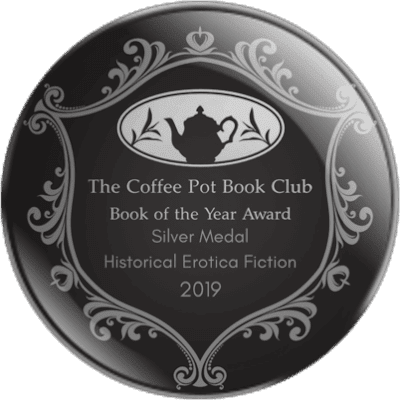
Anna Belfrage
 Anna Belfrage combines an exciting day-job as a board of director in various listed companies with her writing endeavours. When she isn’t writing a novel, she is probably working on a post or catching up on her reading. Other than work and writing, Anna finds time to bake and drink copious amounts of tea, preferably with a chocolaty nibble on the side. And yes, now and then she is known to visit a gym as a consequence…Find out more about Anna by visiting her website, www.annabelfrage.com or her Amazon page.You can also find her on Facebook or Twitter.
Anna Belfrage combines an exciting day-job as a board of director in various listed companies with her writing endeavours. When she isn’t writing a novel, she is probably working on a post or catching up on her reading. Other than work and writing, Anna finds time to bake and drink copious amounts of tea, preferably with a chocolaty nibble on the side. And yes, now and then she is known to visit a gym as a consequence…Find out more about Anna by visiting her website, www.annabelfrage.com or her Amazon page.You can also find her on Facebook or Twitter.
Published on April 26, 2020 20:00
April 24, 2020
#BookReview — Crusader's Path by Mary Ann Bernal #HistoricalFiction #HistoricalRomance @BritonandDane
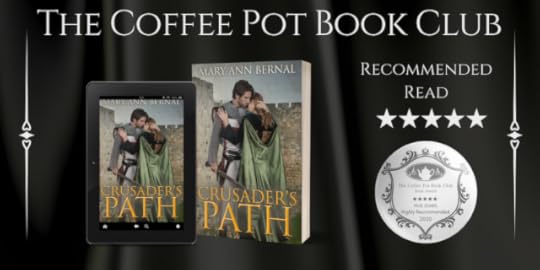
Crusader's PathBy Mary Ann Bernal
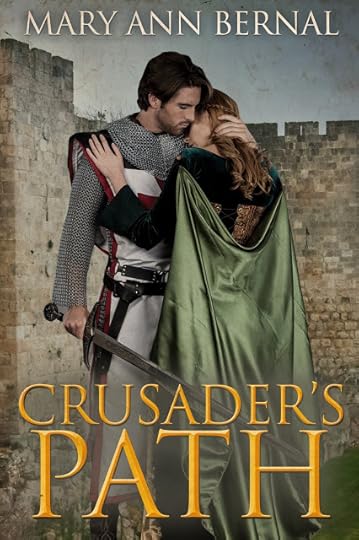
From the sweeping hills of Argences to the port city of Cologne overlooking the River Rhine, Etienne and Avielle find themselves drawn by the need for redemption against the backdrop of the First Crusade.
Heeding the call of His Holiness, Urban II, to free the Holy Land from the infidel, Etienne follows Duke Robert of Normandy across the treacherous miles, braving sweltering heat and snow-covered mountain passes while en route to the Byzantine Empire.
Moved by Peter of Amiens’ charismatic rhetoric in the streets of the Holy Roman Empire, Avielle joins the humble army of pilgrims. Upon arrival in Mentz, the peasant Crusaders do the unthinkable, destroying the Jewish Community. Consumed with guilt, Avielle is determined to die fighting for Christ, assuring her place in Heaven.
Etienne and Avielle cross paths in Constantinople, where they commiserate over past misdeeds. A spark becomes a flame, but when Avielle contracts leprosy, Etienne makes a promise to God, offering to take the priest cowl in exchange for ridding Avielle of her affliction.
Will Etienne be true to his word if Avielle is cleansed of the contagion, or will he risk eternal damnation to be with the woman he loves?

"Did not the walls of Jericho fall after the Israelites walked around them? … Is not our faith equal to theirs, if not greater?"
Etienne d'Argences did not need much encouragement to heed the call of His Holiness, Urban II. If Duke Robert of Normandy intended to fight in this Holy War, then Etienne would as well.
Avielle had to get away from Cologne, for there is nothing left there for her but bittersweet memories. When Avielle hears Peter of Amiens' sermon, she feels compelled to join his army and march towards Jerusalem.
But when Avielle reaches Constantinople, her life is irrevocably changed forever...
From the mountain tops of Cologne, where the lepers made their home, to the Siege of Jerusalem, Crusader's Path by Mary Ann Bernal is the unforgettable story of two people who find love amongst the carnage of the First Crusade.
What a journey Bernal takes her readers on! Crusader's Path is a richly detailed and emotionally charged story that is utterly unputdownable. With carefully crafted prose and a narrative that is as lucid as it is detailed, Bernal shows us what the Holy War was like for both the Crusaders and those who got in the way of their goal. It is a story of sacrifice and loss, but above everything else, it is a story of love. This is the kind of book that sends shivers down your spine.
The heroine of this tale is a young woman called Avielle. Having suffered so greatly with the loss of her father to leprosy, Avielle has great compassion for the sick and the shunned. She risks her health, and indeed her own life, to nurse those with the disease. Avielle trusts God to keep her safe — a trust that is sometimes misplaced. And yet, her faith isn't shaken, and she continues to look to Him for guidance. Her story is a tragic one. She is a lost lamb that seems forever out of reach of the Good Shepherd. Avielle also carries a tremendous burden of guilt which leads her to some extraordinary situations. She feels compelled to follow Peter's Crusade to the Holy Land, where she witnesses the most appalling atrocities, which makes her question the holiness of the army she is following. However, she is still convinced in divine intervention and indeed, when Avielle chooses to follow her own path and not one ordained by God, she finds herself in the most desperate of situations. Avielle is an extraordinarily complex heroine who is almost like a feather caught in the breeze — she does not quite know where she is going to land. I thought Bernal portrayed Avielle with great skill and diligence. I really enjoyed reading about her and this perilous journey that she finds herself on.
Etienne d'Argences is an intriguing protagonist who is pulled in several very different directions during this book. He single-mindedly pursues his own desires. He is determined to follow Duke Robert wherever he may lead, but by doing so, he sacrifices many people along the way, including his wife. Often Etienne finds himself conflicted between reason and emotion — he knows his wife needs him, but when he is at his estate with the people who love him, he feels stifled and he cannot wait to leave again. Initially, he sees love as an obstacle that he has to overcome, and it isn't until he meets Avielle that he realises that love should have been his goal all along. Bernal has really captured the essence of a Crusader who longs for adventure and the comradeship of his Lord and fellow knights. His relationship with Duke Robert is an interesting one — it is not the usual relationship one would expect to find between a Duke and his knight — they are each other's confident and above everything else, best friends. His relationship with Avielle has a similar feel to it, except romantic love is also added to the equation. I adored Etienne, and I enjoyed reading about him.
This portrayal of love in Crusader's Path is slightly different when compared to what one would expect from a traditional historical romance. It takes a while for the two protagonists to find each other, which worked exceptionally well for this story. Etienne and Avielle's love is forged in the fires of a Holy War. Their love is a welcomed relief to the horrors of the battlefield and the sickroom. But it is also a love that cannot be withheld, despite the social difference between the two. Etienne and Avielle are not looking for love when they find each other, but they both recognise that they are meant to be together, which is exceedingly romantic.
Bernal has masterfully depicted the horrors of the First Crusade. There are some profoundly upsetting scenes in this book, and there are certainly many casualties in this war. Bernal's portrayal of what became known in history as the Rhineland Massacres of the Jews, in particular, the persecution and the destruction of Jewish communities in Mentz (Mainz) left me reaching for the tissues. The Siege of Antioch was also particularly well-drawn — Bernal captured the horrors in the Crusader's camp as food ran scare and disease took hold. She also demonstrated the rivalry between Godfrey of Bouillon and Raymond IV, Count of Toulouse, fabulously. The historical detailing in this book is staggering. Bernal has captured the very essence of what it must have been like to follow men such as Peter of Amiens (Peter the Hermit) and The Army of Robert Curthose of Normandy which was led by Robert, Duke of Normandy.
If you are looking for your next great Historical Fiction book then look no further than Crusader's Path by Mary Ann Bernal. I think this may well be Bernal's best book yet!
I Highly Recommend.
Review by Mary Anne Yarde.The Coffee Pot Book Club.
Pick up your copy ofCrusader's PathAmazon UK • Amazon US
Mary Ann Bernal
 Mary Ann Bernal attended Mercy College, Dobbs Ferry, NY, where she received a degree in Business Administration. Her literary aspirations were ultimately realized when the first book of The Briton and the Dane novels was published in 2009. In addition to writing historical fiction, Mary Ann has also authored a collection of contemporary short stories in the Scribbler Tales series. Her latest endeavor is a science fiction/fantasy novel entitled Planetary Wars Rise of an Empire. Originally hailing from New York, Mary Ann now resides in Elkhorn, Nebraska. Connect with Mary Ann: Website • Whispering Legends Press • Twitter.
Mary Ann Bernal attended Mercy College, Dobbs Ferry, NY, where she received a degree in Business Administration. Her literary aspirations were ultimately realized when the first book of The Briton and the Dane novels was published in 2009. In addition to writing historical fiction, Mary Ann has also authored a collection of contemporary short stories in the Scribbler Tales series. Her latest endeavor is a science fiction/fantasy novel entitled Planetary Wars Rise of an Empire. Originally hailing from New York, Mary Ann now resides in Elkhorn, Nebraska. Connect with Mary Ann: Website • Whispering Legends Press • Twitter.
Published on April 24, 2020 20:00
April 23, 2020
A Conversation with #HistoricalFiction author, Brook Allen #AncientRome @1BrookAllen

A Conversation with Historical Fiction author, Brook Allen
Please give a warm Coffee Pot welcome to the author whose book, Antonius: Son Of Rome, was named The Coffee Pot Book Club Book of The Year 2019.
MA: Hi Brook, it is so lovely that you could drop into day and have a chat. For my readers who may not be familiar with you and your books, could you please tell them a little about yourself.
BA: Thanks for hosting me, Mary Anne. I’m historical fiction author, Brook Allen. I have a passion for all history, not just the ancient world. However, Rome’s late Republic has always been one of my favorite periods.
 Brook at the Actium site.
Brook at the Actium site.MA: What inspired you to write your fabulous Antonius Trilogy?
BA: I’ve wanted to write on the end of the Republic since reading Julius Caesar in high school. When I got my Masters, I focused on ancient Roman studies and finally felt well-equipped enough to begin writing. I had read Margaret George’s iconic Memoirs of Cleopatra—THREE TIMES, and it really inspired me. But Caesar’s story had been done recently, and so had Cicero’s. I kept coming back to Marc Antony. He’s so controversial and when I started researching him, I got excited. Nobody has really ever tackled the end of the Republic from his perspective before. And it turns out, he had quite a story from childhood until he died. And it’s a unique story that most people aren’t aware of. Antony’s best known for his speech at Caesar’s funeral and for his relationship to Cleopatra, but believe me—there’s a whole lot more to him than that!
MA: I think you already know how much I love your series on Marc Antony, but could you explain how did you come up with your setting, and your characters?
BA: World-building is probably my favorite part of writing historical fiction. In my opinion, the setting has to be as strong as the characters. I want readers totally immersed in wherever the story takes them, whether it’s a steamy, cavernous bathhouse or the horrific site of a bloody battle lost. If it’s wonderful, I want a reader to dream about it. If it’s terrible, let them have nightmares! When one writes a biographical historical fiction work, you are bound by particular facts about the people upon whom you focus. But that doesn’t mean it can’t be fun! It’s been a joy giving “Marcus” sidekicks, habits—he likes to chew his lip, for example. I got that one from my husband, who does that whenever he’s nervous or stressed! And travel was integral to getting a real perspective for these books. Looking back, I think one thing that absolutely floored me was how large an ancient battle’s theater of war could be. And this was an age before radios or email. I had to create a world that was both old and yet sophisticated in many ways.
MA: There are many books in the ancient Roman historical fiction genre. Can you tell us three things that set your novels apart?
BA: First, I mentioned above that no author (to my knowledge) has ever approached this story in a retelling from Antony’s perspective. Believe me—it does give the historical record a completely new light. Secondly, when I started the project, I felt strongly that it needed to start when he was younger. Not much is really known about his early life, but there were so many things going on that had to have influenced him as he grew up. Patricia Southern’s biography on him was especially strong in pointing this fact out. By starting back when he was only eleven, the reader will better understand why he might have acted the way he did, later in life. Lastly, so many people have written this story from Cleopatra’s perspective. It has often left the perception that Antony was less important to the historical record, but truly, he was the ruler of the east. She was not. Yes, she was a great queen. But here is a guy who ruled an enormous territory and represented Rome for a decade, having to travel all over the place constantly, trying to keep the peace, and put out fires whenever there was an uprising. When you look at a map of the distances he traveled and how huge his borders were, it’s incredible that he did it for so long without technology, cell-phones, or the use of modern transportation. I think my books will prove that even though he continues to be controversial, Antony’s story was greatly blackened by his enemies and that will be made plain.
 Brook in Alexandria Egypt's harbor
Brook in Alexandria Egypt's harborMA: One last question! Can you tell us what you are you currently working on?
BA: I’m working on the second draft of the final book in the trilogy. Its title is Antonius: Legend. A lot of readers are really looking forward to this one, so my husband keeps warning me, “don’t make it a Season 8 of Game of Thrones”! Ha! No pressure! If all goes well and I’m able to make my deadlines, then I’m hoping to launch it in the fall. After that, I’ll be taking a departure from ancient Rome for a while to write a slice-of-life story that’s much closer to home. I’m really looking forward to researching new material and getting out into my own community. For those readers who love the beginnings of American history and westward expansion, you’ll probably be most interested in my next project. It’ll be fun approaching something fresh and new.
 Brook with Antonia, Marcus's daughter
Brook with Antonia, Marcus's daughterMA: Thank you so much for stopping by today, Brook!If you would like to learn more about Brook’s fabulous series then you know what to do, SCROLL DOWN!
For over two thousand years, Marc Antony has been one of history’s most controversial men. His story was buried with him and written by his enemies. Now his entire saga is revealed in a compelling trilogy by Brook Allen.
Antonius: Son of RomeBy Brook Allen

After young Marcus Antonius’s father dies in disgrace, he yearns to restore his family’s honor during the final days of Rome’s dying Republic. Marcus is rugged, handsome, and possesses abundant military talent, but upon entering manhood, he falls prey to the excesses of a licentious society. His whoring, gambling, and drinking eventually reap dire consequences. After a series of personal tragedies, Marcus must come into his own through blood, death, and sacrifice. Once he finally earns a military commission, he faces an uphill battle to earn the respect and admiration of soldiers, proconsuls, and kings. Desperate to redeem his name and carve a legacy for himself, he refuses to let warring rebels, scheming politicians, or even an alluring young Egyptian princess stand in his way.
Pick up your copy ofAntonius: Son of RomeAmazon UK • Amazon US

The Antonius saga continues…
Antonius: Second in CommandBy Brook Allen

Having proven himself as a formidable cavalry commander, Marcus Antonius finally earns a position at his kinsman Julius Caesar’s side. However, Caesar is an exacting general, demanding complete allegiance from his staff, even when his decisions put him at odds with the Senate. Marcus’s loyalty to Caesar comes at a cost, and he soon finds himself embroiled in mob violence and military mutinies. As civil war brings Rome’s Republic crashing down, many a relationship is torn asunder, including Marcus’s marriage. Determined to rise triumphant in Rome’s new era, Marcus faces his fears, his failures, and his enemies—not the least of whom is himself.
Amid the crisis of the Ides of March, Marcus must don the mantle of ruthlessness to carve his own legacy in Rome’s history. Enemies have been made, wills have been read, and heirs proclaimed.
But in Rome’s civil unrest, blood answers only to blood.
Excerpt
From Antonius: Second in Command
“Push forward!” Marcus yelled over the din. It was true that sex thrilled him as few things did, but this night of nights, surrounded by danger and death, his five senses were heightened like never before.
Sights.
It was nearly impossible to see all of the action around him, even now with his eyes accustomed to the night. Torches held aloft by slaves and smoldering pitch-fed fires were the only sources of light available. It was too risky to hurl javelins for fear of hitting one another instead of Gauls. He kept reminding his cavalry, “Trust your horses’ eyes in the dark!”Sounds.
Men screaming, unnerved horses blowing snorts, and hooves drumming the ground. Metal clanging on metal. Someplace in the darkness some damnable Gaul was blasting a carnyx trumpet every ten beats of Marcus’s racing heart. Now and then an arrow hissed past his ear. If one took him by chance, there’d be nothing to do but fall and die. Tonight death was as random as a Venus in dice.
Smells.
Beneath the broken walls, billowing smoke nearly choked everyone. The stink of burning flesh and hair, mixed with feces from men who’d taken gut wounds, hung low on the battleground. Intermingled in the tightest knots of desperately fighting men was the odor of unwashed bodies reeking from weeks of work and hard labor.
Touch.
Beneath him, Marcus’s horse quivered. Sometimes it stumbled, probably on a corpse shrouded in the night. Marcus’s left hand ached from the weight of his shield; his neck twitched with tension. He kept his gladius drawn, using its shining length to guide his men.
Taste.
Thick smoke from torches and pitch, coupled with burning oil, made him gag. Marcus could actually taste the acrid soot. Once, his horse spooked, and he bit his tongue, drawing blood, a warm, metallic trickle inside his dry mouth. After one engagement, he reached for the wineskin on his saddle, relishing the watered grape, a temporary relief for his parched throat.
Bellows of cheering men, glints of polished weapons, and quick-tramping infantry were what Marcus Antonius remembered about the night he and Trebonius worked together to turn a near defeat into Caesar’s greatest triumph.
Alesia was won!
Pick up your copy ofAntonius: Second in CommandAmazon UK • Amazon US

Brook Allen
 Brook Allen has a passion for ancient history—especially 1st century BC Rome. Her current work is a trilogy on the life of Marcus Antonius—Marc Antony, which she has worked on for the past fifteen years. The first installment, Antonius: Son of Rome was published in March 2019. It follows Antony as a young man, from the age of eleven, when his father died in disgrace, until he’s twenty-seven and meets Cleopatra for the first time. Brook’s new book is Antonius: Second in Command, dealing with the Antony’s tumultuous rise to power at Caesar’s side and culminating with the tumultuous civil war against Brutus and Cassius.
Brook Allen has a passion for ancient history—especially 1st century BC Rome. Her current work is a trilogy on the life of Marcus Antonius—Marc Antony, which she has worked on for the past fifteen years. The first installment, Antonius: Son of Rome was published in March 2019. It follows Antony as a young man, from the age of eleven, when his father died in disgrace, until he’s twenty-seven and meets Cleopatra for the first time. Brook’s new book is Antonius: Second in Command, dealing with the Antony’s tumultuous rise to power at Caesar’s side and culminating with the tumultuous civil war against Brutus and Cassius.In researching the Antonius Trilogy, Brook’s travels have led her to Italy, Egypt, Greece, and even Turkey to explore places where Antony once lived, fought, and eventually died. While researching abroad, she consulted with scholars and archaeologists well-versed in Hellenistic and Roman history, specifically pinpointing the late Republican Period in Rome. Brook belongs to the Historical Novel Society and attends conferences as often as possible to study craft and meet fellow authors. Though she graduated from Asbury University with a B.A. in Music Education, Brook has always loved writing. She completed a Masters program at Hollins University with an emphasis in Ancient Roman studies, which helped prepare her for authoring her present works.
Brook teaches full-time as a Music Educator and works in a rural public-school district near Roanoke, Virginia. Her personal interests include travel, cycling, hiking in the woods, reading, and spending downtime with her husband and two amazing Labrador Retrievers. She lives in the heart of southwest Virginia in the scenic Blue Ridge Mountains. Connect with Brook: Website • Twitter • Facebook.
Published on April 23, 2020 20:00
April 22, 2020
Join #HistoricalRomance author, Jayne Davis as she takes a look at life in the time of Formal #Gardens. There is also a chance o check out Jayne's fabulous new book — A Suitable Match @jaynedavis142

Life in the time of Formal GardensBy Jayne Davis
With many of us around the world going a little stir crazy, I thought I’d share a historical day out from last year. Wrest Park is a stately home with extensive gardens, owned by English Heritage.The house is relatively modern, having been rebuilt in the 1830s. This post concentrates on the gardens, interesting because parts of them are still very similar to the way they were in the 1700s. Most other stately home gardens have been landscaped to more modern, informal designs.
 The house at Wrest Park.
The house at Wrest Park.In the 17th century, many owners of stately homes modelled their gardens on those at Versailles –how better to emphasise your status than by replicating the gardens of the French kings? The style was based on formal patterns and straight lines, including parterres (flower beds in symmetrical patterns) and usually a long, straight water feature. This print from 1708 shows the Wrest Park gardens with parterres behind the house. The shaded line stretching into the distance is a canal (a rectangular lake).
 Wrest House and gardens in 1708.
Wrest House and gardens in 1708.This aerial photo of the gardens at Versailles shows the similarity. The wooded areas beyond the formal gardens were another feature of this type of garden, providing a network of paths and rides, and these were introduced at Wrest Park after the print above was made.
 The gardens at Versailles- Credit: ToucanWings / CC BY-SA (https://creativecommons.org/licenses/...).
The gardens at Versailles- Credit: ToucanWings / CC BY-SA (https://creativecommons.org/licenses/...).Today, Wrest Park has some more modern flower gardens close to the house, but still has parterres leading to open spaces and then the Long Water bordered on each side by woodland.
 Part of the parterre, with the Long Water and the Pavilion at the far end.
Part of the parterre, with the Long Water and the Pavilion at the far end. View of the house from the far end of the Long Water.
View of the house from the far end of the Long Water.The gardens were used for recreation—entertaining one’s guests in lavish style was another way of displaying wealth and status. The Pavilion at the end of the Long Water was used by hunting parties and sometimes for formal dining. It has elaborate trump d’oeil paintings inside, giving the impression of classical pillars and ornate plasterwork inside the dome.
 The Pavilion, seen here from the side.
The Pavilion, seen here from the side.The gardens have other structures, dating from various times, including an orangery, the Bowling Green House (although the bowling green is no longer there), a rustic cottage, and various statues and monuments both in the open gardens and in small clearings along the woodland walks.
 One of the many statues in the woodland.
One of the many statues in the woodland.In the mid-18th century, Capability Brown (more on him in a future post) was asked to remodel parts of the grounds into the new English fashion for a less formal, landscape style. He wasn’t allowed to touch the main parts of the grounds, but softened the edges and added an irregular canal around the edges of the woodland.
 The Chinese Bridge over the informal canal that now surrounds the end of the garden.
The Chinese Bridge over the informal canal that now surrounds the end of the garden.Images:Wrest House in 1708 from https://commons.wikimedia.org/wiki/File:WrestHouse1708.jpgVersailles from https://creativecommons.org/licenses/by-sa/3.0All other photos by the author.
A Suitable Match By Jayne DavisJayne’s latest book is on pre-order. A Suitable Match is Book 2 in the Marstone Series, but each story can be read as a standalone novel with no cliffhangers.

England, 1782Lady Isabella has been kept on a tight rein by Lord Marstone, her overbearing father. She's excited when he packs her off to London to make an advantageous match, confident her brother will preserve her from an unsuitable alliance. But when her brother is called away on vital business, he asks Nick Carterton to stand in for him.Nick, a scholar who relishes the quiet life, has avoided marriage for years but is finally giving in to his father’s request that he seek out a bride. Looking out for a young miss new to society is the last thing he'd choose to do.Will Nick’s attempts to help merely reinforce Isabella’s resentment at having her life arranged for her? Can Nick keep the headstrong Isabella out of trouble, put off unsuitable suitors, and still find himself a wife?
Pre-order your copy ofA Suitable Match Amazon UK • Amazon US
Jayne Davis
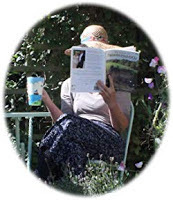 Jayne Davis writes historical romances set in the late Georgian/Regency era, published as both ebooks and paperbacks.She was hooked on Jane Austen and Georgette Heyer as a teenager, and longed to write similar novels herself. Real life intervened, and she had several careers, including as a non-fiction author under another name. That wasn't quite the writing career she had in mind...Finally, she got around to polishing up stories written for her own amusement in long winter evenings, and became the kind of author she’d dreamed of in her teens. She is now working on the first few books in the Marstone Series, set in the late Georgian/early Regency period.Connect with Jayne: Website • Facebook • Twitter • Pinterest • Goodreads.
Jayne Davis writes historical romances set in the late Georgian/Regency era, published as both ebooks and paperbacks.She was hooked on Jane Austen and Georgette Heyer as a teenager, and longed to write similar novels herself. Real life intervened, and she had several careers, including as a non-fiction author under another name. That wasn't quite the writing career she had in mind...Finally, she got around to polishing up stories written for her own amusement in long winter evenings, and became the kind of author she’d dreamed of in her teens. She is now working on the first few books in the Marstone Series, set in the late Georgian/early Regency period.Connect with Jayne: Website • Facebook • Twitter • Pinterest • Goodreads.
Published on April 22, 2020 21:30
#BookReview — To Catch a Falling Star (The Graham Saga, Book #8) by Anna Belfrage #HistoricalFiction #TimeTravel @abelfrageauthor
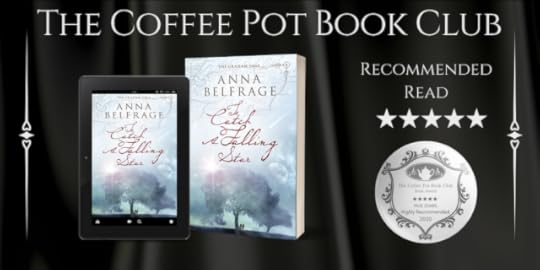
To Catch a Falling Star(The Graham Saga, Book #8)By Anna Belfrage
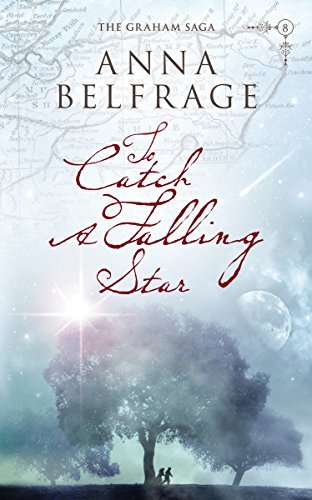
To Catch a Falling Star' is the eighth book in Anna Belfrage’s series featuring time traveller Alexandra Lind and her seventeenth century husband, Matthew Graham.
Some gifts are double-edged swords…
For Matthew Graham, being given the gift of his former Scottish manor is a dream come true. For his wife, Alex, this gift will force her to undertake a perilous sea journey, leaving most of their extensive family in the Colony of Maryland. Alex is torn apart by this, but staying behind while her husband travels to Scotland is no option.
Scotland in 1688 is a divided country, torn between the papist Stuart king and the foreign but Protestant William of Orange. In the Lowlands, popular opinion is with Dutch William, and Matthew’s reluctance to openly support him does not endear him to his former friends and neighbours.
While Matthew struggles to come to terms with the fact that Scotland of 1688 bears little resemblance to his lovingly conserved memories, Alex is forced to confront unresolved issues from her past, including her overly curious brother-in-law, Luke Graham. And then there’s the further complication of the dashing, flamboyant Viscount Dundee, a man who knocks Alex completely off her feet.
All the turmoil that accompanies their return to Scotland pales into insignificance when a letter arrives, detailing the calamities threatening their youngest daughter in Maryland – at the hand of that most obnoxious minister, Richard Campbell. Matthew and Alex have no choice but to hasten back, no matter the heartache this causes.
Will they make it back in time? And what will Richard Campbell do?

"Stupid, gallant man.""All heroes are," Matthew said. "Some actually win." Matthew laughed, somewhat sadly. "Not the ones we remember. Not the ones we write songs about."
What about the ones that lie in a cold churchyard, mourned by their family but eventually forgotten by the world? Unless, of course, you have travelled through time and have lived and loved in two very different centuries.
Alex Graham knew all about that. It has been thirty years since she had fallen through time and unwittingly met her soul mate, Matthew Graham, the man she married and begot nine children with. While Alex does not regret leaving the 21st Century, she does regret leaving Grahams Garden in the Colony of Maryland. If only her brother-in-law, Luke Graham, had simply thanked them for rescuing his son from a lifetime of indentured servitude, but instead he had gifted them with Matthew's former Scottish manor.
While Matthew counted down the days until he saw his beloved Scotland again, Alex unwillingly prepares to leave her family. However, the Scotland Matthew encounters on his return is not the one that he remembers, and the welcome he expected to receive is not forthcoming.
Torn between her duty as a wife and that of a mother, Alex can only pray that the upcoming war between the papist Stuart king and the Protestant William of Orange will pass them by unscathed…
From an emotional goodbye to the bloody Battle of Killiecrankie and a fight to save a woman accused of murder, To Catch a Falling Star (The Graham Saga, Book #8) by Anna Belfrage is the enchanting story of one family as they battle to stay together in the face of surmounting odds.
To Catch a Falling Star — was ever a book so aptly named? Life is fleeting. The heavens above are not. This novel is as tense as it is powerful, as captivating as it is compulsive. The Graham Saga is a series that has not only captured my imagination, but it has also apprehended my heart in a way that only one other series has done before. With the most scrupulous care, Belfrage has presented her readers with a saga that portrays everything that is wrong with humanity while balancing it with everything that is right. Love. Hate. War. Peace. Suffering. Joy. Pain. Comfort. This is a story that demonstrates the human condition like no other that has come before it. Nobody in the world writes Historical Fiction the way Anna Belfrage does.
The protagonists of this saga, Alex and Matthew, are older, their children are growing up, some already have children of their own and yet, even with their experience, they still don't always get things right. Their relationship is steadfast although there are moments of disappointment with each other. Alex's preening at the attention of John Graham is countered by Matthew allowing Nan's ridiculously obvious flirtation towards him to go unchallenged. While jealousy rears its ugly head, it also allows these two characters to take stock and realise how important they are to each other. I adore Alex and Matthew, and I have done so from Book 1. They are these two beautiful people, from two very different times, who through chance, perhaps even fate, have carved out this most extraordinary life together.
Luke Graham has been the antagonist in this story from the very beginning, but in this novel, we catch a glimpse of what drove him to do what he did. Luke is a character that I initially despised, and I still don't know what I feel about him. Sometimes I find myself incredibly sympathetic, and then at other times…He is so infuriating! Luke has had time to reflect upon his loss, upon his life, and he now recognises what he feels towards Matthew and acknowledges it. He is, and always has been, jealous. In this book, Luke tries to temper that jealousy, to let bygones be bygones, but it is incredibly challenging for him to do so. I am glad that Belfrage has allowed her readers to get to know Luke a little better, although the jury is still out as to whether I can forgive him for the things he put Matthew and Alex through!
There are many secondary characters in this book — most of which are Alex and Matthew's children and their extended families. But I want to focus on Isaac. Isaac is Alex's son from the 21st Century and he, once again, falls through time. Isaac is an emotional mess when he arrives in Seville, Spain. He is trapped in a world he does not understand, nor wants to. Isaac is a product of his time, he hates the way of life he is being forced to live, and yet his depression, his fear of failure prevents him from trying to get back to his own time. Isaac is a character that roused my sympathy, but at times he also disgusted me. As this novel progresses Isaac becomes someone unrecognisable. He does things he would never have done back in the 21st Century, nor would have done if he were not propelled into a war that he should never have participated in. I thought Isaac’s portrayal was fabulous and reminded the readers once again that this saga is a time-travel story, and although Alex embraced the gift that time-travel gave her, for others, it is a terrible life-sentence.
Belfrage has, in this series, explored the devastating consequences of religious persecution, dangerous superstition and political unrest. In this book, Belfrage has explored the threat of the Spanish Inquisition, the looming war between the Catholic King James II of England and the Protestant Dutchman, William of Orange, as well as the burning of Catholic properties in the Colony of Maryland. Belfrage has depicted this era of religious intolerance, and political instability in all of its ugliness. Friend turns upon friend — neighbour upon neighbour. The you are with us or against us mentality is played out in all its vivid detail as Matthew tries to stay out of a war he wants no part of, while his daughter flees from her home in fear of her life because of her religion. The sheer terror of being persecuted because of your belief is portrayed with remarkable realism, as is the struggle to maintain an essence of yourself when faced with the horrors of a battlefield while you fight for a war you don't believe in, nor want any part of. Through characters such as Sarah and Isaac, Belfrage has shown her readers how terribly tragic and unjust the world can be, and how those in power played with lives while trying to profit and enrich their own. Belfrage demonstrates with her elegant prose the consequences of a religion corrupted by the hands of the fanatical. She also shows her readers how history is composed of a complicated network of truths and lies. There were no winners on the battlefield at Killiecrankie, there were just men and boys, whose lives had been forfeited for the sake of a crown, title, and wealth. Where was their belief, their cause, their king, while they lay dying in a field with the carrion birds flying above them? It is a sobering thought.
Staying with the historical detail for a moment, I would like to talk about Belfrage's depiction of John Graham, 1st Viscount Dundee "Bonnie Dundee". To make a historical character breathe again, to give him life, return that twinkle of mischief back into his eyes, is a skill that should never be underestimated, and it is why I have so much respect for Historical Fiction authors. I thought Dundee's depiction was sublime. He is a character that is both hated and loved. He is as complicated as he is loyal. He is in all ways a contradiction. Belfrage has a tremendous eye for human detail, and John's depiction demonstrates once again why she is one of my favourite authors.
To Catch a Falling Star (The Graham Saga, Book #8) by Anna Belfrage is the kind of story that will get a reader hooked. Time ceased to matter as I lost myself in this strangely familiar world where Alex and Matthew reside. This book is a reward for any reader, as is this series which is a gift that keeps on giving. I wait with eager anticipation for the final instalment of The Graham Saga.
I Highly Recommend.
Review by Mary Anne Yarde.The Coffee Pot Book Club.
Pick up your copy ofTo Catch a Falling StarAmazon UK • Amazon US
Anna Belfrage
 Had Anna been allowed to choose, she’d have become a time-traveller. As this was impossible, she became a financial professional with two absorbing interests: history and writing. Anna has authored the acclaimed time travelling series The Graham Saga, set in 17th century Scotland and Maryland, as well as the equally acclaimed medieval series The King’s Greatest Enemy which is set in 14th century England. She has recently released the first in a new series, The Wanderer. This time, she steps out of her normal historical context and A Torch in His Heart is with a fast-paced contemporary romantic suspense with paranormal and time-slip ingredients.
Had Anna been allowed to choose, she’d have become a time-traveller. As this was impossible, she became a financial professional with two absorbing interests: history and writing. Anna has authored the acclaimed time travelling series The Graham Saga, set in 17th century Scotland and Maryland, as well as the equally acclaimed medieval series The King’s Greatest Enemy which is set in 14th century England. She has recently released the first in a new series, The Wanderer. This time, she steps out of her normal historical context and A Torch in His Heart is with a fast-paced contemporary romantic suspense with paranormal and time-slip ingredients.Find out more about Anna by visiting her website, or herAmazon page.
Published on April 22, 2020 21:00
Check out #HistoricalFiction author, Jill Caugherty's, fabulous #NewRelease — Waltz in Swing Time @JillCaugherty

Waltz in Swing TimeBy Jill Caugherty
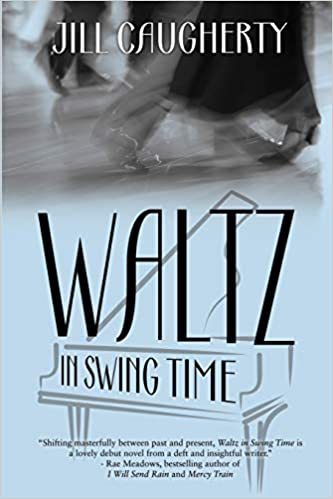
Growing up in a strict Utah farm family during the Depression, Irene Larsen copes with her family’s hardship by playing piano. Even when an unthinkable tragedy strikes, Irene clings to her dream of becoming a musician. When a neighbor's farm is foreclosed, Irene's brother marries the neighbor's daughter, who moves in with the Larsens and coaches Irene into winning leading roles in musicals. Clashing with her mother, who dismisses her ambition as a waste of time, Irene leaves home.During a summer job at Zion National Park, she meets professional dancer Spike, a maverick who might be her ticket to a musical career. But does pursuing her dream justify its steep price?Alternating between Irene’s ninetieth year in 2006 and her coming-of-age in the thirties, Waltz in Swing Time is a poignant tale of mother-daughter relationships, finding hope amidst loss, and forging an independent path.
The Coffee Pot Book Club
★★★★★
Highly Recommended
Read the full review HERE!

Pick up your copy ofWaltz in Swing TimeAmazon UK • Amazon US
Jill Caugherty
 Jill Caugherty is the author of the novel WALTZ IN SWING TIME, set in Depression-era Utah.
Jill Caugherty is the author of the novel WALTZ IN SWING TIME, set in Depression-era Utah.Jill’s short stories have been published in 805Lit and Oyster River Pages, and her debut short story, “Real People,” was nominated for the 2019 PEN/Robert J. Dau Short Story Prize for Emerging Writers.
Jill holds a B.S. in Computer Science from Stanford University, an M.S. in Computer Science from Rensselaer Polytechnic Institute, and an MBA with honors from the University of North Carolina at Chapel Hill Kenan-Flagler Business School.
An award-winning marketing manager with over twenty-five years of experience in the high tech industry, she lives in Raleigh, North Carolina with her husband and daughter. Connect with Jill: Website • Twitter • Goodreads.
Published on April 22, 2020 20:00
April 21, 2020
#BookReview — Whither Thou Goest (The Graham Saga, Book #7) by Anna Belfrage #HistoricalFiction #HistoricalRomance @abelfrageauthor

Whither Thou Goest(The Graham Saga, Book #7)By Anna Belfrage
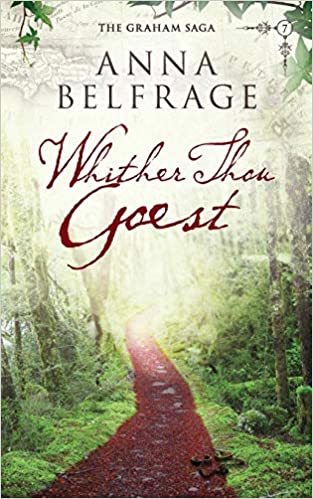
Whither Thou Goest is the seventh book in Anna Belfrage’s series featuring time traveller Alexandra Lind and her seventeenth century husband, Matthew Graham.
In their rural home in the Colony of Maryland, Matthew and Alex Graham are still recovering from the awful events of the previous years when Luke Graham, Matthew’s estranged brother, asks them for a favour.
Alex has no problems whatsoever ignoring Luke’s sad plea for help. In her opinion Matthew’s brother is an evil excuse of a man who deserves whatever nasty stuff fate throws at him. Except, as Matthew points out, Luke is begging them to save his son – his misled Charlie, one of the Monmouth rebels – and can Charlie Graham be held responsible for his father’s ill deeds?
So off they go on yet another adventure, this time to the West Indies to find a young man neither of them knows but who faces imminent death on a sugar plantation, condemned to slavery for treason. The journey is hazardous and along the way Alex comes face to face with a most disturbing ghost from her previous life, a man she would much have preferred never to have met.
Time is running out for Charlie Graham, Matthew is haunted by reawakened memories of his days as an indentured servant, and then there’s the eerie Mr Brown, Charlie’s new owner, who will do anything to keep his secrets safe, anything at all.
Will Matthew deliver his nephew from imminent death? And will they ever make it back home?

“You don't have to do this. You don’t owe Luke anything. That brother of yours has cost you dearly. Years in prison, further years of slavery, constant persecution back in Scotland…”
Alex was right. Matthew did not owe Luke anything. But Jacob had been Charles' friend, and if he were alive, then he would not hesitate to get on a ship and sail to Charles' aid. So it falls to Matthew, Jacob's father, to go in his son's place and rescue his nephew. Alex is determined to go with her husband. For whither her husband goest, she too will go.
But life as an indentured servant is cruel, harsh and without humanity. Time is most definitely not on Matthew's and Alex’s side.
From the death of an enemy to the birth of a longed-for child, Whither Thou Goest (The Graham Saga, Book #7) by Anna Belfrage is an emotionally charged and powerful story that will instantly transport you back in time to the 17th Century.
Oh, how I love this series. This saga sends tingles down my spine, and each book is an absolute joy from start to finish. I have to admit, that every time I pick up a book in The Graham Saga I cannot help but fear that the author is going to run out of momentum, that the story is going to fall flat because to keep up this level of engagement, to continue with a story that covers decades and two very different timelines is incredibly challenging. But each time, Belfrage nails it. Each time she delivers. Whither Thou Goest may well be my favourite book in The Graham Saga yet.
I have spoken at length about Alex and Matthew's portrayal in previous reviews and their relationship continues to fascinate in this novel. The title of this book is very appropriate. Ruth 1:16, is one of my favourite passages in the Bible, for it speaks of unquenchable love and unquestionable loyalty. It really does sum up Alex and Matthew — they are two souls who no matter what befalls them will be forever joined. It is a love larger than life, more potent than death even. Their love is not fanciful — it is not too good to be true — it is very real in the telling, very vivid. With each book, I fall more and more in love with them.
I want to come away from Alex and Matthew and have a look at a few of the secondary characters that help to make this story so very addictive. I want to start with Samuel or White Bear as his Indian father knows him by. Samuel is Alex and Matthew's thirteen-year-old son who went to live with the Indians for a year and now he does not know where he belongs. He lives with Qaachow's tribe, and he loves his Indian family dearly, but at the same time, he wants the comforts of his mother's arms. I adored Samuel, he is such a brave and compassionate young man and to be so conflicted really did pull at my heartstrings. I thought his depiction was absolutely brilliant, and I am looking forward to reading more about him in the upcoming books.
The other character I want to talk about is Michael Connor. Michael is a new character, introduced into this story, and he has the misfortune of being related to the Burleys, who are the vilest creature ever to walk the earth. However, Michael is nothing like them in the sense that he knows right from wrong, he recognises injustice, and he is wise enough to read between the lines. His act of heroism was in itself a reason for any reader to like him, but he continued to surprise me throughout this book, and he grew into a character that was the epitome of romance and chivalry. He became a happy ending for a character that was in dire need of one. I adored Michael. His struggles to become a better man than his uncles, and his determination to turn towards love instead of giving into hate made him all the more heroic.
Belfrage first introduced her readers to the absolute horrors of slavery and indentured servitude in Like Chaff in the Wind (The Graham Saga Book #2), but she has revisited the vile practice in this novel. Through young Charles Graham, we experience the brutal physical and psychological domination of a young man who so happened to be on Monmouth's side during the ill-fated Rebellion of 1685. Charles, a once proud young man, is subjected to unimaginable suffering. After witnessing his best friend suffer a traitor's death, Charles finds himself on a ship sailing to the West Indies, his sentence, one of life as an indentured servant — but that was only the beginning of his torturous journey. Charles' depiction brought tears to my eyes. His plight is insufferable, and unlike Matthew, who once found himself in the same desperate situation, Charles' sprit was broken before he even reached the plantation. He isn’t defiant. He accepts the way life is with an almost resigned understanding that this is where he will die. He becomes a slave's slave. His situation is heartbreaking. Indentured servitude in history is always eclipsed by the brutality of the African slave trade, but it was as cruel, and many white men were sent to these far off places to die. Hanging would have been merciful compared to the hell many of these men suffered. Belfrage does not shy away from the abject misery, and the appalling treatment that these men, women and children faced on a daily basis. Beating, sexual abuse, starvation, a complete disregard for humanity, Belfrage has captured it in prose in all of its ugliness. Belfrage also asks her readers to think about the morality, in a historical setting, of one person owning another human being. The slave owners look at these people as stock — they dehumanise them and seemingly delight in their misery. Mr Sassafras Brown is the very essence of immorality, and yet he puts on airs of civilisation and thinks himself better than the unfortunate beasts that are dying for him out in his fields of sugar. He is a vile man who does not see that what he is doing is so fundamentally wrong. Charles' story is very humbling, and one that I will never forget.
Graham's Garden — the Graham's homestead in the Colony of Maryland is a symbol of freedom and peace, and despite not being immune to the evil inherent of humanity, it remains a sanctuary of sorts for the Graham's clan. It has become their home in all sense of the word, not only for the Grahams but also strangely for me as well. I have walked the floors of the homestead with the Grahams and their family, I have celebrated in their successes and commiserate with their losses. This book, this setting, is now so achingly familiar that I could almost imagine myself there, that I lived and am living this life with them. Not many authors can connect with their readers at such an emotional level, but Belfrage can.
Whither Thou Goest (The Graham Saga, Book #7) by Anna Belfrage is a historical triumph. I cannot praise this series enough. It is absolutely superb, and I cannot wait to get my hands on Book #8.
I Highly Recommend.
Review by Mary Anne Yarde.The Coffee Pot Book Club.
Pick up your copy ofWhither Thou GoestAmazon UK • Amazon US
Anna Belfrage
 Had Anna been allowed to choose, she’d have become a time-traveller. As this was impossible, she became a financial professional with two absorbing interests: history and writing. Anna has authored the acclaimed time travelling series The Graham Saga, set in 17th century Scotland and Maryland, as well as the equally acclaimed medieval series The King’s Greatest Enemy which is set in 14th century England. She has recently released the first in a new series, The Wanderer. This time, she steps out of her normal historical context and A Torch in His Heart is with a fast-paced contemporary romantic suspense with paranormal and time-slip ingredients.
Had Anna been allowed to choose, she’d have become a time-traveller. As this was impossible, she became a financial professional with two absorbing interests: history and writing. Anna has authored the acclaimed time travelling series The Graham Saga, set in 17th century Scotland and Maryland, as well as the equally acclaimed medieval series The King’s Greatest Enemy which is set in 14th century England. She has recently released the first in a new series, The Wanderer. This time, she steps out of her normal historical context and A Torch in His Heart is with a fast-paced contemporary romantic suspense with paranormal and time-slip ingredients.Find out more about Anna by visiting her website, or her Amazon page.
Published on April 21, 2020 20:00
The Coffee Pot Book Club
The Coffee Pot Book Club (formally Myths, Legends, Books, and Coffee Pots) was founded in 2015. Our goal was to create a platform that would help Historical Fiction, Historical Romance and Historical
The Coffee Pot Book Club (formally Myths, Legends, Books, and Coffee Pots) was founded in 2015. Our goal was to create a platform that would help Historical Fiction, Historical Romance and Historical Fantasy authors promote their books and find that sometimes elusive audience. The Coffee Pot Book Club soon became the place for readers to meet new authors (both traditionally published and independently) and discover their fabulous books.
...more
...more
- Mary Anne Yarde's profile
- 159 followers



